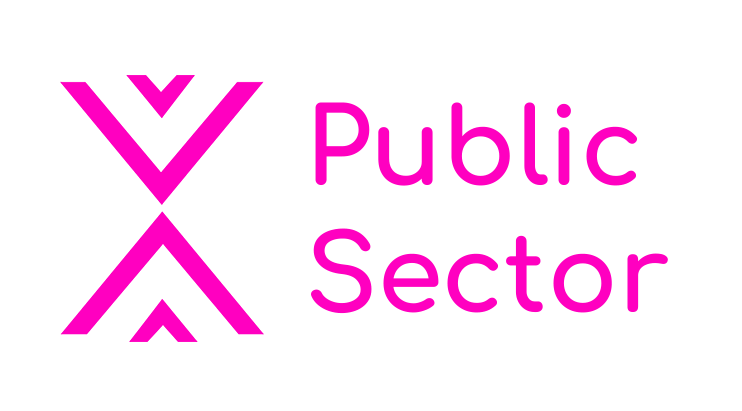
Are the Government Taking Enough Action to Improve Air Quality?
The government unveiled its Environmental Improvement Plan 2023 in February. This outlines the government's objectives for combating climate change as well as their strategies for doing so. One of the largest environmental hazards to people's health is air pollution. To tackle this the government have to set out a delivery plan covering five main areas:

How do the government intend to lower emissions at home?
One of the reforms the government intend to make is higher regulation when it comes to burning high emissions materials at home. To do this the government are putting a stop to the sale of smaller quantities of wet wood; although it will still be possible to purchase this in bulk. The government intends to submit legislation that would outlaw the production of conventional house coal. A cap will be introduce on the amount of emissions and sulphur contents created from manufacturing solid fuels. The government aims to give additional powers to local so they can implement Smoke Control Areas more effectively. This could involve imposing fines and punishing repeat offenders. The government have ruled out a total ban on domestic burning in England.
The UK government wants to ensure that air quality is a key consideration in the planning process. To do this, a new approach will be developed, using the Environmental Outcomes Reports to pinpoint areas in need of improvement. This means they will be able to continually make any necessary changes to the planning laws. The government are committed to making sure that air quality considerations are a priority when building the additional homes needed to satisfy the nation's housing goals.

To help raise awareness of the effects of air pollution, Defra has been entrusted with developing extensive and focused communication efforts. This will involve publishing best practice guidance for both indoor and outdoor burning. These increased communications are intended to make sure that individuals have the necessary tools and knowledge to help reduce air pollution and limit their own exposure.
What will be done to encourage local government agencies to take effective local action?
The government want to focus on what authorities can do to reduce emissions, especially in densely populated areas. The introduction of an Air Quality Strategy will give local authorities explicit instructions on how to incorporate air quality considerations into their larger programmes. The role of these local authorities in achieving the government targets will also be emphasised in the Air Quality Strategy.
To facilitate efficient, well-coordinated action, local air quality zones will be modified. The government will also provide Local Transport Plan Guidance to help with air quality when it comes to transportation.
How will the government uphold & strengthen its framework of industrial emissions regulations?
The government and its departments have been working closely together to produce "Best Available Techniques" (BAT) for controlling industrial pollution. This approach will continue to be used by Defra to raise standards throughout the industrial sector. They will also keep enhancing the plan in accordance with any fresh business practices or technological advancements.
When it comes to the regulatory frameworks, they aim to lay better foundations. This is crucial for assisting businesses in developing detailed plans for lowering emissions and achieving net zero. The modifications include integrating the regulation of GHG emissions and other industrial emissions.
Another stage in the government’s plan to enhance air quality is continued regulation. The government will concentrate on creating an efficient structure for small business. They will aim to implement a system for small business that is comparable to the BAT model they use for larger businesses.
What does the government plan to do in order to aid farmers in their efforts to lessen the impact of ammonia emissions?
87% of UK ammonia emissions come from the agricultural sector, thus it's critical that the government concentrate on encouraging farmers to cut emissions. As part of the Sustainable Farm Incentive, Defra will concentrate on a new nutrient management standard. Farmers will receive more money under this incentive to be able to plant and maintain legume fallows. The government will also invest more funds in providing guidance on how to increase effective nutrient usage. They also hope to encourage effective nutrient management on grassland and agricultural lands.
The government intends to consult this year about the possibility of granting environmental permits to dairy and intensive meat farms. This is a crucial topic for discussion because, in 2020, these farms collectively accounted for 46% of all agricultural greenhouse gas emissions in the UK and over half of the country's ammonia emissions. In order to determine the best strategies farmers might use to comply with the permitting system, they will also collaborate with the agricultural sector.

Defra plans to implement measures to lower emissions from organic manures and inorganic fertilisers. Via the Red Tractor guarantee scheme and qualified consultants, this will be an industry-led approach. Infrastructure for slurry storage will get a £13 million investment from the government by 2023. New regulations to cut ammonia emissions from the handling of organic manures will be the subject of consultation. These would include demands to cover slurry and digestate stockpiles and employ low emissions spreaders for these materials. As part of Countryside Stewardship, the government also plans to increase the availability of low-emissions machinery and maintain support for the Farm Equipment and Technology Fund.
In order to achieve our net zero goals, anaerobic digestion is a key technology. It produces biogas that can be converted into biomethane, which is chemically identical to natural gas and may be used in its place. The only green gas currently generated commercially in the UK is biomethane. An investigation into technology that can be used to process digestate to lower ammonia emissions at the pertinent locations has been financed by the Department for Business, Energy and Industrial Strategy (BEIS). Operators of anaerobic digestate stores will continue to be required by Defra to cover new digestate stores. Later in 2023, they will consult on further strategies to lower ammonia from the storage and application of organic manures, including digestate. In order to reduce ammonia emissions while maintaining the market for anaerobic digestate, Defra will think about the optimum approach to treat digestate.
In addition to encouraging the development of biogas and biomethane, BEIS will keep demanding that low emission spreading equipment be used whenever digestate from anaerobic digestate plants is dispersed. In order to develop affordable ways to mitigate environmental impacts from digestate, especially ammonia emissions, they will also take the results of a recent techno-economic study into account. The adoption of these technologies may be a requirement for participation in future policy frameworks that promote the production of biogas and biomethane that is more sustainably sourced.
How will the government reduce emissions from cars and other types of transport?
In order to aid in the reduction of road emissions, National Highways will be required to collaborate with local governments. New powers will be introduced, so that if it is discovered that a vehicle does not comply with the environmental criteria it was supposed to when it was sold, the government will be able to order the manufacturer to recall it. This will guarantee a more prompt and stern reaction to any upcoming violations.
Although the government has been attempting to lower NO2 levels in problem areas, some regions of the nation continue to exceed these limitations. In Sheffield, a new Clean Air Zone will be implemented and in other regions that are not meeting the necessary standards, more actions will be introduced.
Decarbonizing the entire UK transportation sector is one of the government's larger objectives. The Department of Transportation will be presenting a package of initiatives to assist drivers in switching to zero emission vehicles on top of the obligations already in place. Included in this are grants to lower the initial cost of plug-in vehicles, which will last at least through the financial years 2023–2024 for taxis and motorcyclists and 2024–2025 for vans and trucks. Generous tax rates are still in effect, including zero vehicle excise charge until 2025 and advantageous company car tax rates.

The government wants to encourage the quickening of the construction of a top-notch network of charging infrastructure. Increasing infrastructure spending to enable walkable and bikeable cities with the goal of having half of all cities' infrastructure in place by 2030. They will be funding studies to identify strategies for lowering brake and tyre emissions from moving cars and establishing a zero-emission vehicle mandate that, starting in 2024, will require an increasing percentage of new automobile and/or van sales from manufacturers to be zero-emission. The government will also look into establishing a single regulatory framework that would apply to all sorts of road vehicles and would include the phase-out dates for each form of vehicle in UK law.
The Department of Transportation will commission an extensive assessment of the rules, benchmarks, and recommendations governing air quality on the rail network. The creation of industry goals to enhance air quality in problematic areas, such as enclosed train stations, will be specifically influenced by this. In order to track the effect that diesel trains have on the quality of the air, they will also invest £4.5 million in an Air Quality Monitoring programme that will collaborate with the rail sector.
Further actions will be taken to deliver the Clean Maritime plan. A consultation on expanding the current North Sea Emission Control Area to include the Irish Sea will take place. Shipping within this region is subject to stringent emission restrictions. The Department of Transportation will set up a "course to zero" for the domestic maritime industry following the 2022 consultation. Together with the long-term interventions required to achieve full decarbonization and lessen the environmental effects of shipping, they will also publish an update to the Clean Maritime Plan that will offer indicative decarbonization targets for the domestic maritime industry.
Do you believe the steps above are enough or can the government still do more?
You can find the government's full 2023 Environmental Improvement Plan here.
Nexere support a range of clients who are dedicated to helping reach the UN Net Zero Goal.
Nexere News
Sign-up to Nexere News
Thank you for choosing Nexere.
Stay tuned for news & updates.
Please retry.














